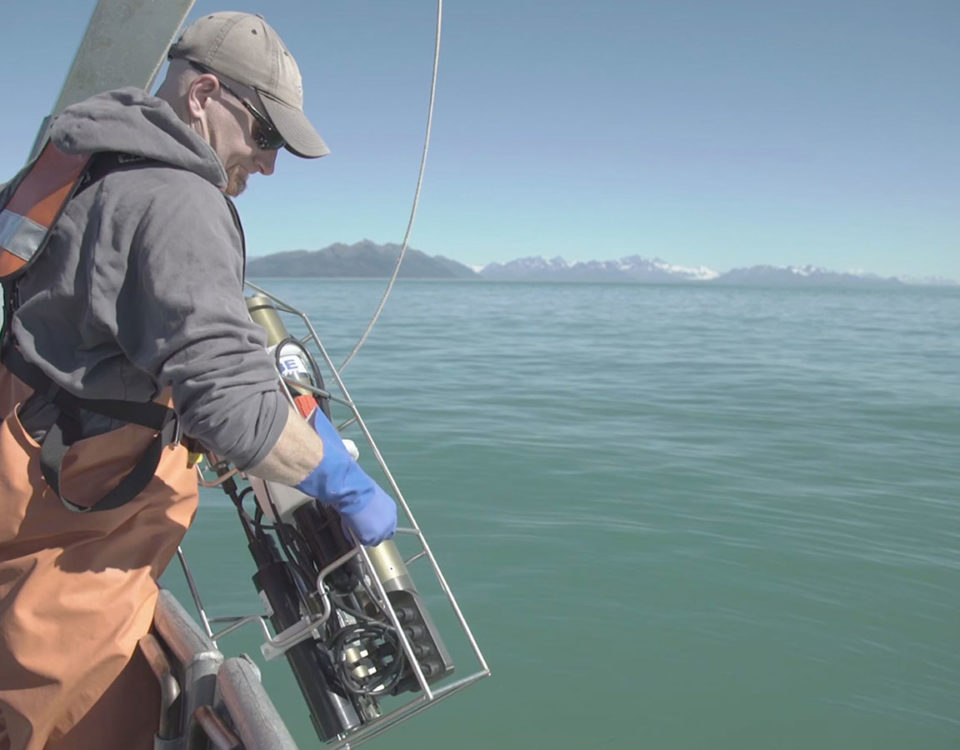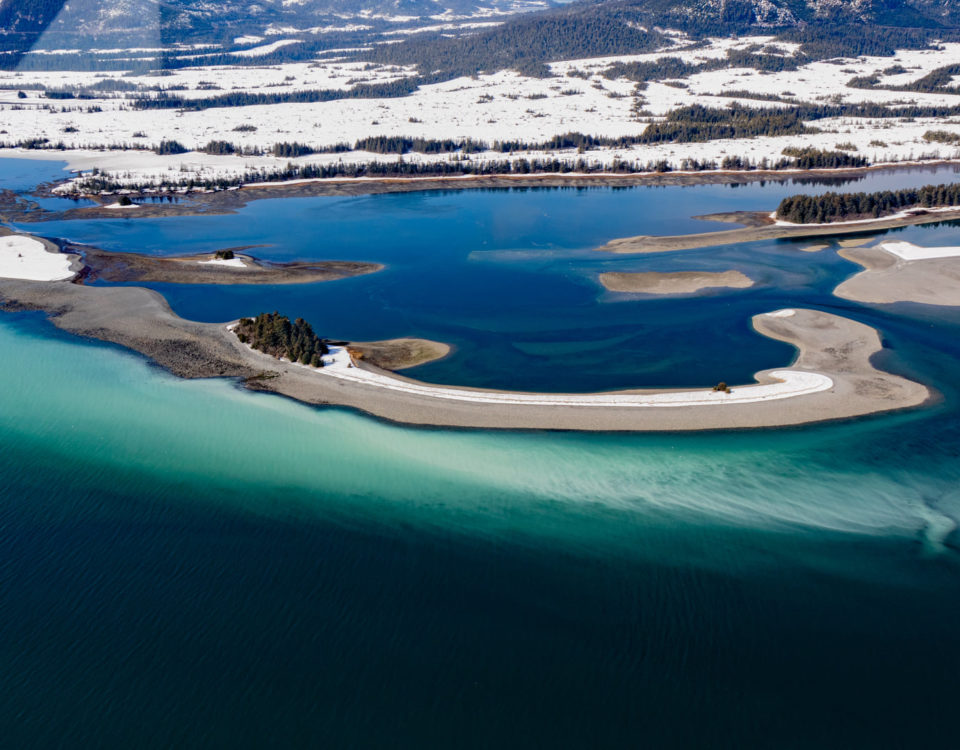Community-Led Climate Adaptation in Cordova

Community-Led Climate Adaptation in Cordova: First Steps Toward Resilience
Climate change is dramatically altering the marine ecosystem of the Gulf of Alaska, leading to downturns in several valuable fisheries, decreasing fish sizes, changes in salmon run timing and strength, and algal and jellyfish blooms.
The Prince William Sound Science Center (PWSSC), Alaska Longline Fishermen’s Association (ALFA), Alaska Marine Conservation Council (AMCC), and NOAA Alaska Fisheries Science Center are partnering to create locally specific climate adaptation plans for Cordova, Sitka, and Kodiak. PWSSC is leading this effort for Cordova, integrating regional concerns from communities that use Cordova as a fishing hub. Bringing in community partners and organizations can help us realize the spectrum of vulnerabilities and strategies for innovation, collaboration, and coordination to adapt and build resilience in our fisheries and communities.
Project update: Initial Adaptation Discussion
In November 2024, members of the Cordova fishing community gathered for the first round of the Adaptations Workshop. This initiative brought together diverse voices to tackle some of the most pressing challenges presented by a changing climate. By working in small groups, participants identified key obstacles and began brainstorming potential solutions to ensure Cordova’s long-term sustainability and resilience. Through thoughtful dialogue, participants worked through problem statements on five central themes:
- Workforce Development
- Policy and Management
- Environmental Stewardship
- Sustainable Seafood Markets
- Energy Independence
The overarching question guiding these discussions was: What could Cordova look like in 2025? With that in mind, the group focused on identifying specific challenges and community resources that could be leveraged for meaningful change.
During the workshop, participants shared insights into the barriers Cordova faces within each theme and then brainstormed what local resources might address these challenges. In terms of workforce development, they discussed labor shortages, the loss of traditional knowledge, and the need for youth engagement, identifying apprenticeship programs, vocational training, and mentorship initiatives between seasoned fishermen and younger generations as potential solutions.
Policy and management discussions revolved around the complexity of fisheries regulations and the need for community-driven policies, with suggested resources including collaborative forums between policymakers and local stakeholders, advocacy groups, and data-driven decision-making.
For environmental stewardship, participants highlighted concerns about ocean acidification, habitat degradation, and bycatch, suggesting that scientific partnerships, habitat restoration projects, and sustainable fishing practices could help mitigate these issues.
Sustainable seafood markets were another focus, with challenges such as market access, fluctuating fish prices, and the demand for sustainably sourced seafood. Potential solutions included local branding initiatives, direct-to-consumer sales models, and partnerships with sustainability-certifying organizations.
Finally, energy independence was addressed, with concerns about high energy costs, dependence on fossil fuels, and limited renewable infrastructure. Participants identified community solar projects, energy efficiency programs, and incentives for renewable energy adoption as potential ways to address these issues.
Next Steps: Refining the Vision
The ideas generated in this workshop represent an important starting point. While this summary captures initial responses, further community engagement will help refine and expand upon these insights. The research team plans to continue next steps towards this effort into Spring 2025.
Moving forward, the Prince William Sound Science Center (PWSSC) will:
- Review and validate community responses to ensure accuracy and feasibility.
- Expand adaptation strategies and actions, integrating additional perspectives through continued outreach.
- Develop a comprehensive action plan outlining adaptation strategies, implementation pathways, key lead organizations, timelines, and estimated budgets.
If you are interested in participating in upcoming workshops please contact Kinsey Brown or Hayley Hoover for more information.








